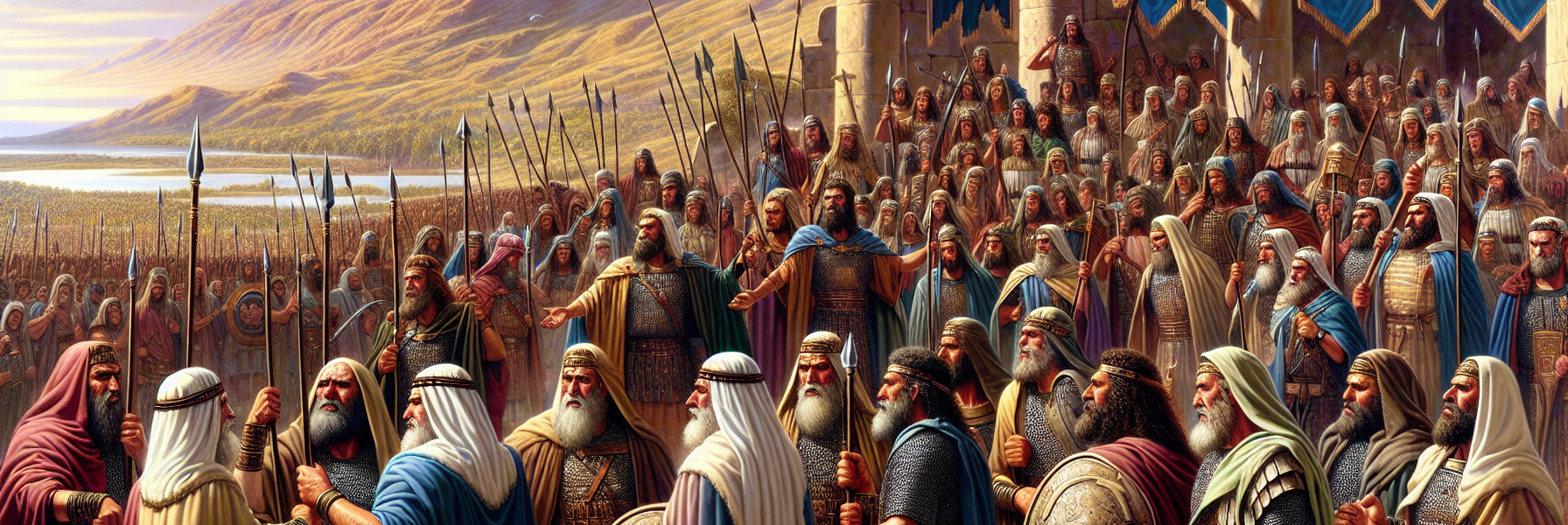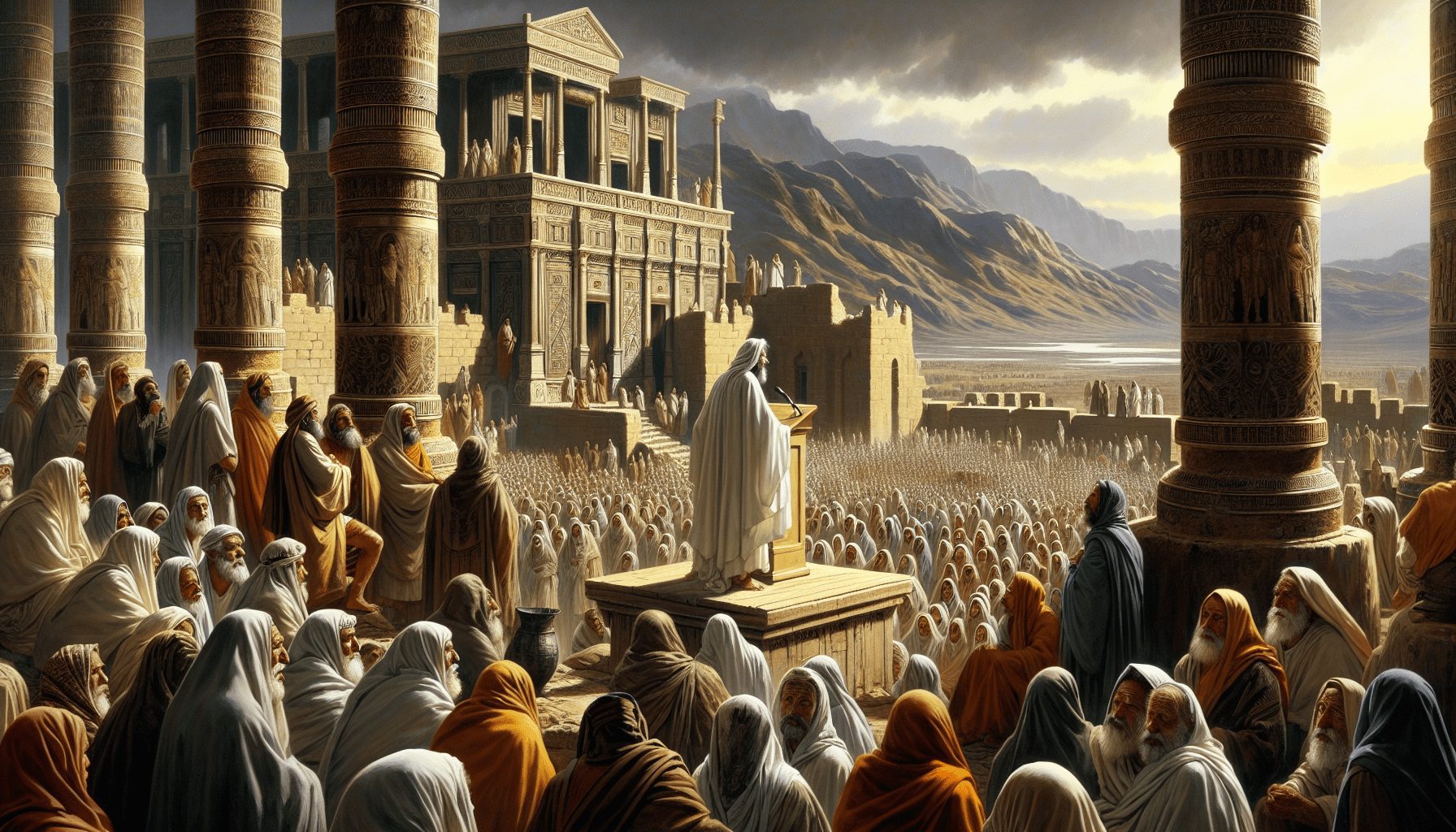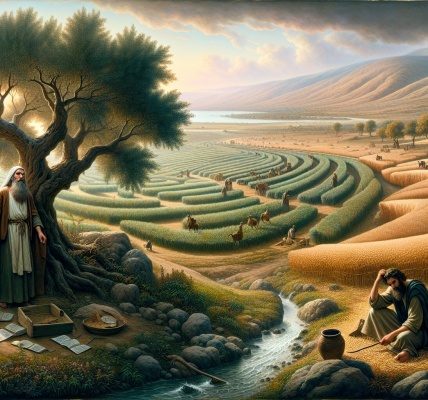**The Conquest of Canaan: The Tribe of Judah Leads the Way**
After the death of Joshua, the Israelites gathered at Shiloh, seeking the Lord’s guidance. The elders and tribal leaders stood before the high priest, their faces etched with determination and uncertainty. The land of Canaan had been promised to them, yet many strongholds remained in the hands of the Canaanites, Jebusites, and Amorites. The Lord spoke clearly: *”Judah shall go up first. Behold, I have delivered the land into their hands.”*
With divine assurance, the men of Judah rallied their warriors, their swords gleaming in the sunlight, their shields strapped tightly to their arms. Alongside them marched their brothers, the tribe of Simeon, for the bond between these tribes ran deep. Together, they advanced toward the city of Bezek, where King Adoni-Bezek ruled with a cruel hand.
The battle was fierce. The war cries of Judah echoed across the plains as they clashed with the Canaanite forces. The Lord fought for them, and soon, Adoni-Bezek fled in terror, his army scattered. The Israelites pursued him relentlessly, capturing him in the open fields. As they brought him before their commanders, the defeated king raised his trembling hands—his thumbs and big toes had been severed by his own captors.
Adoni-Bezek groaned, his voice thick with bitter realization. *”Seventy kings with their thumbs and big toes cut off once gathered scraps under my table. Now God has repaid me for what I have done.”* The men of Judah bound him and brought him to Jerusalem, where he later died.
### **The Fall of Jerusalem and Hebron**
With renewed confidence, the warriors of Judah turned toward Jerusalem. The Jebusite walls loomed high, their defenses formidable, but the Israelites pressed forward. They set the city ablaze, the flames licking the sky as smoke billowed over the rooftops. Yet the Jebusites clung stubbornly to their stronghold, and for a time, they retained control of part of the city.
Undeterred, Judah marched southward to Hebron, the ancient city where giants once dwelled. The descendants of Anak, mighty and fearsome, still held sway there. But Caleb, the faithful spy who had trusted in the Lord forty years earlier, stepped forward. *”To the man who strikes Kiriath-Sepher and takes it, I will give my daughter Achsah in marriage,”* he declared.
Othniel, Caleb’s younger kinsman, a man of valor and cunning, accepted the challenge. With a band of fierce warriors, he stormed the city, his sword flashing like lightning. The gates splintered under the assault, and soon, Kiriath-Sepher fell. True to his word, Caleb bestowed Achsah upon Othniel as his bride.
Achsah, wise and discerning, approached her father with a request. *”You have given me land in the Negev,”* she said. *”Now grant me also springs of water, for the land is dry.”* Caleb, pleased by her wisdom, granted her the upper and lower springs, ensuring her inheritance would flourish.
### **Further Campaigns and Unfinished Conquest**
The men of Judah continued their campaign, striking down the Canaanites in the hill country, the Negev, and the western foothills. They conquered Gaza, Ashkelon, and Ekron, each victory a testament to the Lord’s faithfulness. Yet in some places, the enemy proved stubborn. The valleys were filled with chariots of iron, and though Judah fought valiantly, they could not always drive out the inhabitants completely.
The tribe of Benjamin, too, faced challenges. Though they captured Jebusite-held Jerusalem for a time, the enemy resurged, and the city remained a contested stronghold. The other tribes—Manasseh, Ephraim, Zebulun, Asher, Naphtali, and Dan—each had their struggles. Some cities were taken, others remained unconquered. The Lord had commanded them to drive out all the inhabitants of the land, yet compromise crept in. The Canaanites who remained became forced laborers, their presence a lingering snare.
### **A Warning and a Lesson**
As the sun set over the land of Canaan, the Israelites settled among the people they were supposed to displace. The elders murmured in concern, for they knew the Lord’s warning: *”If you do not drive out the inhabitants of the land, those you allow to remain will become barbs in your eyes and thorns in your sides.”*
Yet for now, Judah had led the way with courage, and the Lord had given them victory. The conquest was far from over, but the promise remained—those who trusted in Him would see His faithfulness unfold.
And so, the tribes of Israel stood at a crossroads—between obedience and compromise, between faith and fear. The next chapter of their story would depend on the choices they made.




